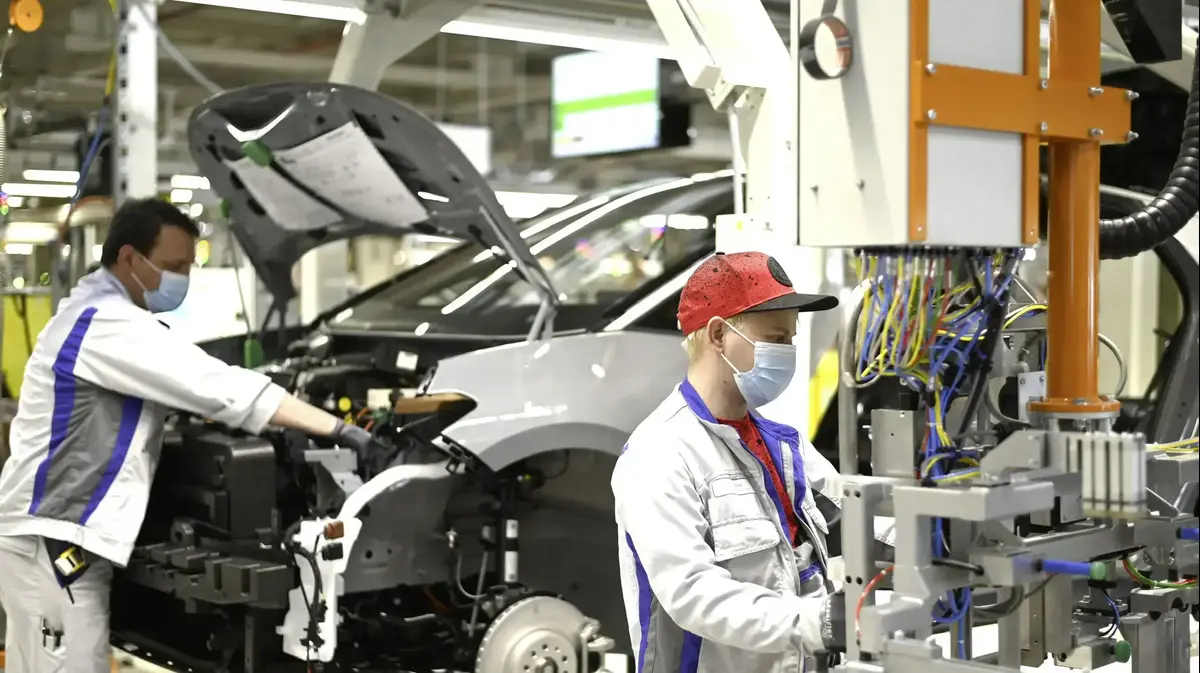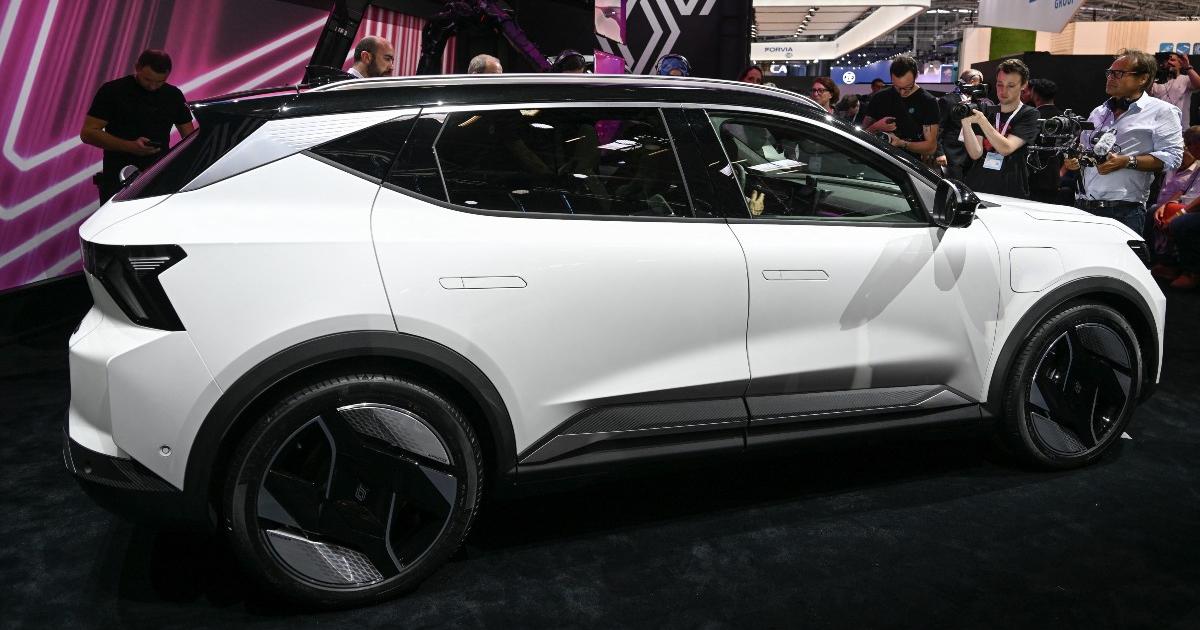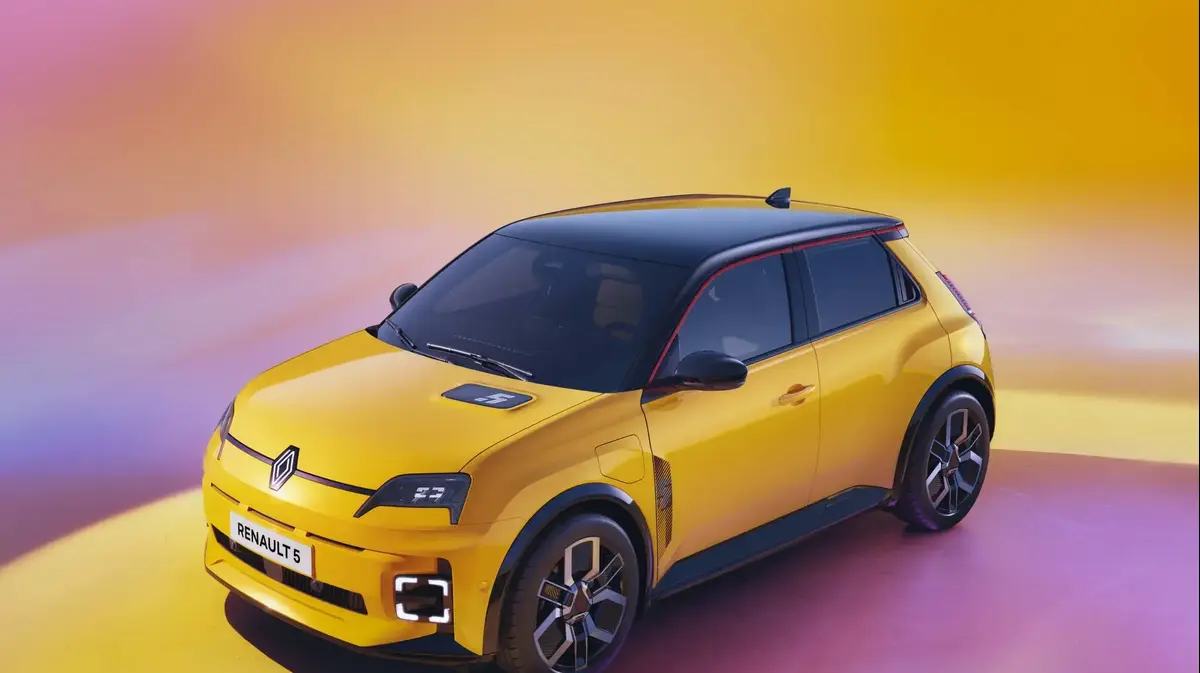First kidnappers: Renault and Volkswagen stop production following the war
Putin's war crimes are deepening and with them the pervasive damage to the auto industry.
Renault and Volkswagen are the first to be hit with a production halt.
Laughter of fate, these are also the two largest Western companies in Russia
Keenan Cohen
26/02/2022
Saturday, 26 February 2022, 19:40 Updated: 20:39
Share on Facebook
Share on WhatsApp
Share on Twitter
Share on Email
Share on general
Comments
Comments
This was the last thing carmakers needed, just as there were encouraging signs of exiting the Corona and the chip crisis slowly coming to an end - the war in Ukraine is shutting down two major Renault and Volkswagen plants and it is not unlikely that more companies will enter the circle soon.
And also: who are the Western manufacturers who make a lot of money from production in the Russian market and whether this time there is a chance that they will stand on the right side of history and boycott Russia.
The modern car industry is more global than ever, and along with the long supply chains coming from every corner of the globe, its vulnerability is also being revealed.
This time it is Renault and Volkswagen factories that will suspend their production due to supply chain difficulties.
More on Walla!
Skeletons under the hood: When car manufacturers prefer money over morals
To the full article
Volkswagen plant in East Germany (Photo: Manufacturer's website)
Renault will stop its production at the company's production facility in Moscow as well as at its plant in Togliati in the south of the country, which is operated in cooperation with the Russian Auto-Vase.
The models manufactured in these facilities are the Capture and the Duster.
The Russian market is the second largest for Renault and Dacia work.
And the economic sanctions that will be imposed on Russia have heavy economic implications for them.
Renault holds 39.5% of car production in Russia.
At Volkswagen, production will be stopped at factories in East Germany, Dresden and Zwickau for several days in early March.
Zwickau is one of the largest production facilities in Europe for electric cars, reaching up to 300,000 cars a year.
Stopping supply from Ukraine, which is responsible for some of the power lines in the cars, will not allow production to continue beyond the current stock.
According to the German Automobile Manufacturers Association, they own 49 production sites in Russia and Ukraine, most of them for domestic markets.
All without exception are expected to face production difficulties in the coming days and weeks as the Russian offensive continues.
A joint venture between Renault and Avtoframos, the largest car manufacturers in Russia (Photo: manufacturer's website)
As mentioned, stopping supply from subcontractors in Ukraine or Russia is definitely a blow to automakers struggling with a global chip crisis that has been going on for about a year and a half.
It is also joined by the rising price of oil, which is climbing above $ 100 a barrel, which also micromanages the delivery of goods, and at the end of the chain is also the incentive to buy a car whose maintenance is becoming increasingly expensive.
Meanwhile, there is a long list of Western automakers that are in very deep collaborations with the Russian automotive industry.
Mainly under production agreements in local factories that benefit from relatively cheap labor and generous government subsidies.
Avtotor, Russia's second-largest carmaker, carries out final trains or complete end-to-end production for BMW and Kia.
Avtoframos is in partnership with Renault and builds for it the Logan and Sandro (which we know as the Dacia).
Hyundai which holds 27%, Volkswagen with 12.2% and Toyota with 5.5% also Ford and Stalantis (mainly with Chrysler and Fiat) hold production facilities in Russia.
The source of these collaborations lies mainly in the forecasts of the early 2000s, so expect that the Russian market is going to be a major growth engine in the automotive industry.
However, instability and an economy that is also lagging behind in its growth rates later reduced the expectation from this market to supply the goods in terms of sales volumes.
All of these manufacturers will face in the first instance a moral dilemma, whether to repeat the crime of collaborating with a murderous regime as they did in the past during World War II during the Nazi era.
In the second stage, they are probably confronted with the facts - under the regime of sanctions that the West is expected to impose on Russia as a lever of pressure and will prohibit collaborations such as those currently underway.
vehicle
Car News
Tags
Ukraine
Russia
war
Europe
Volkswagen
Renault









